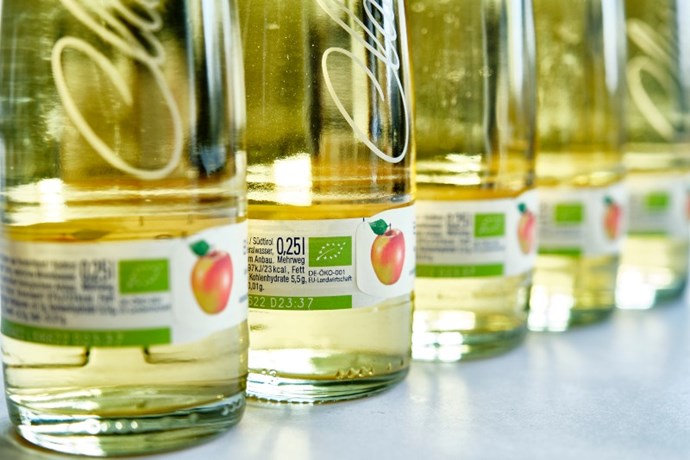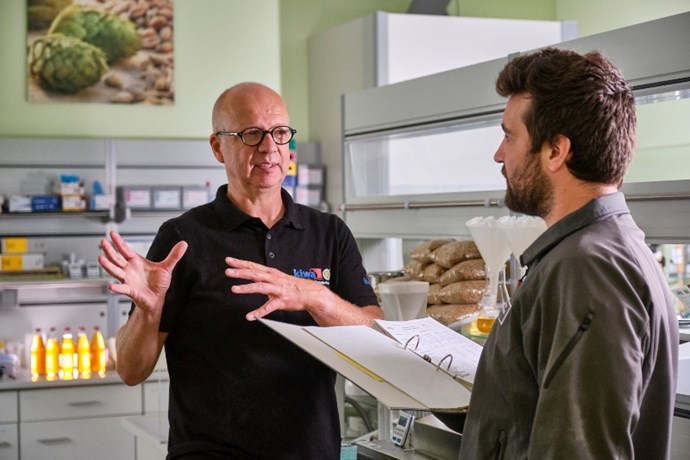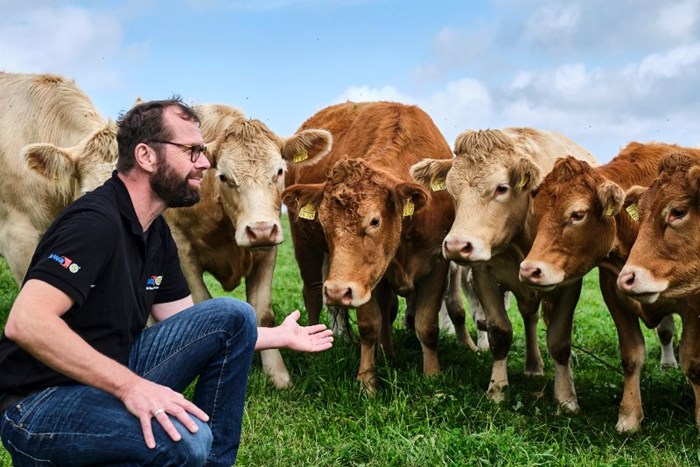Building trust in organic farming
Organic farming: as it uses only organic fertilizers and sustainable farming techniques, it is resource-conserving and environmentally compatible. Also, organic farming regulations encourage a high standard of animal welfare. That is why this method of food production is becoming more and more popular to ever more consumers and farmers seeking to take responsibility for preserving Earth. But with its appeal comes responsibility: farmers will have to respect organic principles, and consumers must be able to determine whether products’ origins are genuinely organic. But how?
Booming demand for organic
Demand for organic products is booming globally. In 2020, the global market for organic products increased to an estimated value of 120 billion euros - 14 billion euros or over 10% more than in 2019. The bulk of that value, 49.5 billion, originates in the US, ahead of Germany and France with 15 and 12.7 billion euros, respectively.
Subsequently, the amount of organic acreage is expanding rapidly as well. In 2020, 75 million hectares of farmland were farmed organically – however still just about 1.6 percent of the total area of agricultural land in the world.
Sure enough, increasing customer demand raises competitiveness and economic attraction of organic farming. But there are other, non-economic reasons for both farmers and consumers to shift their focus to organic. They want to contribute to sustainability and global goals like preventing climate change, safeguarding biodiversity and protecting the environment. As these topics also reach politics, countries set goals for themselves as well. Germany, for example, wants to achieve 30 percent of the farmland being farmed organically by 2030.
New EU Organic Regulation
The fast-growing global organic market also calls for matching effective regulatory frameworks. As far as the European playing field is concerned, an important change occurred on 1 January 2022, when the new EU Organic Regulation 2018/848 came into force.
The new standard, which replaces the European Organic Regulations regarding organic production and labeling of organic products No 834/2007 and No 889/2008, is important for every business that produces, processes and/or sells organic products within the European Union. Whether a processing company, a trader, importer or agricultural company, they all must be certified in accordance with the requirements of the EU Organic Regulation. The new regulation involves many new and stricter rules, among others regarding the control system, but also a greater range of products and new conditions for imported organics to ensure that all organic products sold in the EU meet the same standard.

Proof of organic origin
The importance of ensuring the organic origin of products cannot be underestimated. Consumers buying organic products need to be sure that these comply with relevant regulations. Farmers on the other hand will only benefit if consumers can be confident that organic production requirements are being met. Therefore, the EU maintains a strict system of control and enforcement to guarantee that organics rules and regulations are being followed properly. One of the components of that system is that each EU country designates "control bodies or authorities" to control companies in the organic food chain. Producers, distributors, traders and importers of organic products must be certified by a accredited control body before they can market their products as organic. If their products meet all strict conditions, they can be labelled with the EU organic logo, which serves as proof for consumers as well.
High-impact changes
Kiwa BCS certifies companies according to the EU Organic Regulation 2018/848 and also carries out inspections on behalf of important associations like Naturland, Demeter or Bioland. It does so for thousands of companies based in Europe and in Latin America, China, Turkey, the Middle East and Africa. Many of them are certified according to the BCS Organic production standard, which is equivalent to the EU Organic Regulation and recognized and confirmed as equivalent by the European Commission (currently based on the regulation (EU) 834/2007 and 889/2008).
“The new EU Organic Regulation brings many positive changes, but has a huge impact on the companies it affects”, says Kristina Grocholl from Kiwa BCS. “Operators in the organic sector in the European Union must implement the requirements, and the regulation is expanded with ’agriculture-related products‘ such as mate, beeswax or herbal preparations, like medicinal teas. Also new is that not only the manufacturers, but also the farmers, traders and importers will have to prove during the organic control that they comply with all the measures specified in the new regulation.“
The new regulation also has an effect outside the European Union, albeit in the longer term, adds Kristina. “Operators who are not located in the EU, so-called third countries, will continue to work as usual; for now, there are no major changes. However, following article 57 of the Regulation, by 1 January 2025, these companies will need a certificate - “MC” - that shows compliance with 2018/848.”

Pioneer in organic certification
Being the first registered organic inspection body, Kiwa BCS is one of the pioneers of the organic movement in Europe. It carries out inspections and certifications in all areas of organic production: for farmers, processors, distributors, importers, exporters and warehouses, and also for restaurants, caterers and bistros. In addition to the EU Organic Regulation, there are many other food certification schemes and possibilities, both international, national and regional. Furthermore, the company is accredited in more than 70 countries.
As such, Kiwa BCS is excellently positioned to guide customers through the wide-ranging offer of applicable regulations and their merits. Assistance is provided via, for example, webinars, e-mailings and direct talks with customers. Says Kristina: “Companies entering the organic food market often require proper guidance in making the right choice of certifications or combinations. Kiwa BCS can help with a wide range for a variety of target markets - such as NOP for the USA, JAS for Japan or OSKSA for Saudi Arabia, and certification services like IFS, GMP+ and WeCare. It’s truly a complete portfolio.”



